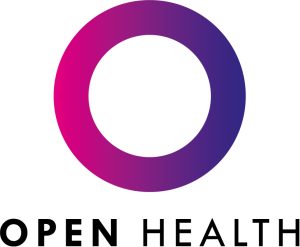The right measurement frameworks matter for demonstrating treatment efficacy in clinical trials for Alzheimer’s Disease
November 9, 2023 |
The right measurement frameworks matter for demonstrating treatment efficacy in clinical trials for Alzheimer’s Disease
Alzheimer’s disease is more than a neurodegenerative disorder. For the 6 million people living with the disease1 (and their caregivers), mild, moderate or severe symptoms are the cause of lost memories, forgotten faces, declines in reasoning and poor decision-making.2
Since 2021, pivotal trials that demonstrated some clinical benefit led to the approval of two disease-modifying therapies, Aducanumab3 and Lecanemab,4 for Alzheimer’s disease. But more than 98% of unique Phase 2 and Phase 3 clinical trials launched since 2003 have failed. Research points to trial-design shortcomings as a pivotal reason for the failures.5
“We’re in a new era of drug development,” said Lauren Podger, MSc, associate director of psychometrics and COA development at OPEN Health. “Ensuring that the trials are designed to assess treatment efficacy optimally and accurately is really paramount to the continued success of approval of novel treatments for this patient population.”
The success of Phase 3 clinical trials depends on novel approaches to assessing the effectiveness of treatments, which includes choosing appropriate clinical outcome assessment (COA) endpoints that are sensitive enough to detect changes in different stages of the disease.
Current efficacy analyses don’t adequately account for the variations in cognitive and functional performance both within and between individuals. Moreover, the same instruments are often used across the board. Tools such as the Mini-Mental State Examination and Alzheimer’s Disease Assessment Scale-Cognitive Subscale, which are used as primary and secondary endpoints in trials, weren’t meant to measure subtle changes at different stages of the disease.
“Those with mild cognitive impairment tend to experience detriments in memory and executive function, whereas those in later stages of the disease tend to experience declines in different areas, like language,” Podger said. “It’s imperative that the outcomes and measures selected are proximal to the stage of the disease and also sensitive to detecting changes in the target population.”
These factors directly influence the likelihood of identifying treatment benefits and play a pivotal role in assessing the efficacy of a therapeutic intervention. In addition, this can present an opportunity to explore alternative measurement frameworks.
For example, clinical trial data, including instances of expensive events such as the need for medical equipment, home health aides or admission to care facilities, measured alongside cognition, can also be leveraged for alternative valuation procedures, said Shauna McManus, MPH, associate scientist at OPEN Health.
These kinds of alternative valuations allow for the assessment of avoided costs that would otherwise occur in the absence of treatment. Applying existing time-to-event methods in a novel way can allow for the exploration of treatment efficacy tied to delaying these expensive events.
“We see it [our work] as a proof of concept for what could be done in a trial,” she explained. “A data collection period within a trial that captures data on what level of disease is associated with these events would allow a sponsor to derive [time-to-event] estimates that are specific to their trial program and is something that should be included in clinical trial data.”
Understanding the theoretical and measurement frameworks for demonstrating treatment efficacy and empirical valuation of Alzheimer’s disease is key to looking at treatment benefit tolerability and safety, especially for new biologics and other novel therapies that don’t have an established pattern, McManus said.
“We’re taking the primary treatment benefit, the thing that researchers and trial sponsors always want to be evaluating, and using it in an alternative way,” she added. “We’re evaluating cognition as a treatment benefit, but we’re also looking at it in this valuation process to look at what’s already there through a different lens.”
Working in partnership with our clients, we embrace our different perspectives and strengths to deliver fresh thinking and solutions that make a difference.
Together we can unlock possibilities.
For information about OPEN Health’s services and how we could support you, please get in touch.
About OPEN Health
OPEN Health unites deep scientific knowledge with wide-ranging specialist expertise to unlock possibilities that improve health outcomes and patient well-being. Working in partnership with our clients, we embrace our different perspectives and strengths to deliver fresh thinking and solutions that make a difference. OPEN Health is a flexible global organization that solves complex healthcare challenges across consulting, HEOR and market access, scientific communications, patient engagement, and creative omnichannel communications. For more information on OPEN Health, visit www.openhealthgroup.com.
References:
1. Alzheimer’s Association. “Alzheimer’s Disease Facts and Figures.” https://www.alz.org/alzheimers-dementia/facts-figures. Accessed Oct. 2, 2023.
2. Alzheimer’s Association. “10 Early Signs and Symptoms of Alzheimer’s and Dementia.”https://www.alz.org/alzheimers-dementia/10_signs. Accessed Oct. 2, 2023.
3. U.S. Food and Drug Administration. “Aducanumab (marketed as Aduhelm) Information.”https://www.fda.gov/drugs/postmarket-drug-safety-information-patients-and-providers/aducanumab-marketed-aduhelm-information. Published July 8, 2021. Accessed Oct. 2, 2023.
4. U.S. Food and Drug Administration. “FDA Converts Novel Alzheimer’s Disease Treatment to Traditional Approval.”https://www.fda.gov/news-events/press-announcements/fda-converts-novel-alzheimers-disease-treatment-traditional-approval. Published July 6, 2023. Accessed Oct. 2, 2023.
5. Kwon, C.K.; Lee, Y.R.; Ong, L.; et al. “Alzheimer’s Disease: Key Insights from Two Decades of Clinical Trial Failures.” Journal of Alzheimer’s Disease.https://content.iospress.com/articles/journal-of-alzheimers-disease/jad215699. Published May 3, 2022. Accessed Oct. 2, 2023.
This content was provided by OPEN Health





